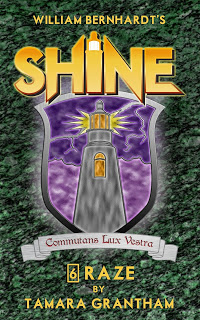Okay writing friends, I know you’ve all heard these rules, but in case you haven’t, I’d like to refresh your memory. This is bad writing 101, and I’d like to take you through the rounds of truly bad writing.
Bad Writing Tip #1: Adverbs and adjectives. Use them as much as you like and as plentifully as you want. They clutter a sentence so bad that they make it unreadable. But who cares? We were taught to use adverbs in grade school, weren’t we? You remember the worksheets, right? (Use two adverbs to describe each verb.) The more the merrier! And why wouldn’t you use an adverb. Doesn’t it sound classier to say, “She ran swiftly.” As opposed to, “She sprinted.” Classier, right. Personally, when I run, I run slowly over the hot gravel track, panting heavily, wishing longingly to stop immediately and partake quickly in some cold, flavorful, delicious Blue Bell ice cream.
Bad Writing Tip #2: Here’s what sparked this post in the first place. I read an article here that I found informative, and I recommend you read. But I have one beef with it. As an example of what-not-to-do in writing, the author uses an example from the #1 bestselling novel OF ALL TIME (right behind the Bible.) Dan Brown’s, THE DA VINCI CODE. For me, this was a less than compelling example. Give me an example from a little known, poorly written book, and yes, I will agree. But from the bestselling book of all time? Give me a break! I can give you an example right here. The topic is bad foreshadowing. You find the sentences all the time in books for young readers. “Little did she know that when she ate the carrot, a magic evil bunny would chew a hole through her hat and turn her into another, more beautiful, less magical bunny.” It’s the “little did she know” part that we writers have issues with. (Ignore the other bunny stuff, I was having a bit of writerly fun.)
In my opinion, the “little did he/she know” device breaks the point of view. It’s author intrusion at its finest. If she didn’t know it, then how could we? No, only the author knows this. And worse, the author must tell us, or else we wouldn’t know it!
There are ways to get around this kind of bad writing. “When she bit into the carrot, she detected a faint bitter taste. Was there something wrong with the carrot? Had it been poisoned? By magic, perhaps? The bunny had been acting strange. No, it couldn’t have been. She took another bite, convinced that she’d imagined the awful taste. No one would want to poison her anyway. And she didn’t believe in magic.”
Bad Writing Tip #3. Bad similes. Similes are like salt. Use salt too much and it overpowers your food. I’m reading a book right now that used a simile in sentence one, and the similes haven’t stopped since. The story is fun and engaging, but when I read similes like, “lightning drew through the sky like a knife through a raw egg…” I stop reading. Why couldn’t the lightning just cut through the sky? Did an egg really need to be involved? A runny egg? I know the answer. Do you? Because, as in example #1, we still remember those worksheets from grade school. (Write three similes in each sentence. Do it for the next fifty sentences.) Similes make writing better, not worse, am I right? They add seasoning and flavor. Down with those short sentences that convey meaning with only a few words! Why use a more engaging verb when we can use a lengthy simile? We need more flavor than we can handle. Overburden us with so many words that we have to reread the sentence three or four times to get the meaning.
I’m sure we could all come up with thousands of more examples, but I’ve found the only sure way to avoid bad writing is to write. Do it everyday. Do it when you don’t want to. It will pay off. Go back. Reread your stuff. Let others read it. After awhile, you’ll see what makes writing good or bad.
I’m proud to put my name on my first published novella, though this was not my first finished book. I went through the rounds of bad writing. I admit to using every one the devices I just mentioned. But with time, my writing has improved. If you’d like to read my novella, Shine #6, Raze in sale for only 99 cents. Here’s what readers have to say, “Two wise-cracking, down at the heels sisters tackle insurmountable odds. This novella has all the components for a good evening’s read: humor, believable characters, lots of action, and an unpredictable plot…”
And don’t forget to check out my latest novella, Shine #10, Never Say Reven, to be released June 10!
